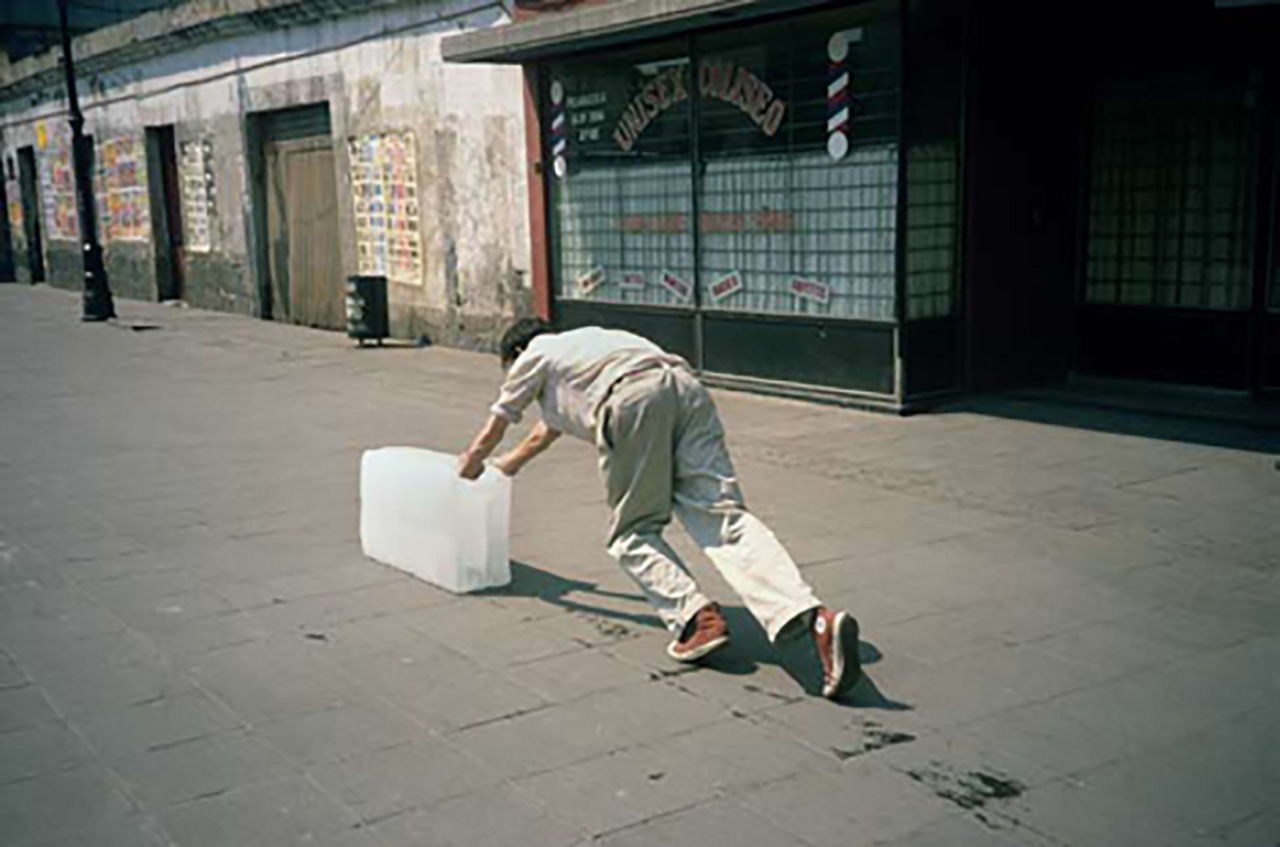Participan:
Inicia
28 octubre, 2019
Termina
3 noviembre, 2019
Dirección
Universidad Nacional Autónoma de México, México Ver mapaEl programa Transregional Academies promueve la divulgación internacional de investigaciones en ciencias sociales y humanidades a través de la discusión y el debate. El programa «Spaces of Art: Concepts and Impacts In and Outside of Latin America» de Transregional Academies tendrá lugar del 26 de octubre al 3 de noviembre en la Universidad Nacional Autónoma de México – UNAM. Patricia Zalamea, decana de la Facultad de Artes y Humanidades de la Universidad de los Andes, integra el Comité Directivo de esta edición y participará en los grupos de trabajo. Por su parte, Prospero Carbonell, egresado del Pregrado en Arte, la Maestría en Historia del Arte y estudiante de la Maestría en Artes Plásticas, Electrónicas y del Tiempo – Mapet de la Universidad de los Andes, participará con su ponencia The Mural Paintings of the House of the Founder of Tunja: Marcs of Nobility Viewed from the Perspective of a “Global Renaissance”. Nuestro egresado ganó la convocatoria del programa que convoca a investigadores para presentar su trabajo y participar en las mesas de discusión.
Sobre el programa
Space is a fundamental category within the discipline of art history since its inception in the nineteenth century. The “spatial turn” proclaimed long ago in the humanities once again focused attention on both the spatial positioning of works of art and the determination of space through works of art and, in particular, architecture. In this context, methodological points of orientation taken from geography, sociology, anthropology, psychology, and even mathematics were integrated to facilitate a transdisciplinary approach to the study of space. Today, these approaches must be reconsidered from a transregional perspective. The focus on Latin America and its long history of colonialization raises specific questions about the appropriation of and encounters with space from a postcolonial perspective. The construction of spaces and their perceptions in and outside of Latin America are key themes of this Academy, which seeks to generate new critical approaches from various methodological and geographical vantage points in an effort to better understand the complexity of this category and to productively incorporate it in research.
Sobre The Mural Paintings of the House of the Founder of Tunja: Marcs of Nobility Viewed from the Perspective of a “Global Renaissance”
Rediscovered in the mid-twentieth century and restored in the 1960s, the mural paintings of the Casa del Fundador, Gonzalo Suárez Rendón (or the Founder of Tunja), have been studied mainly in iconographic terms, where special emphasis has been placed on the tracking of visual and textual sources that arrived from Europe, and served as a reference for the elaboration of the painted cycles in the New Kingdom of Granada (now central Colombia). This research proposes a new interpretation of the late-sixteenth century wall paintings based on a comparative analysis between contemporary literature (Elegies of Illustrious Men of the Indies by Juan de Castellanos) and the images depicted in the ceilings, while giving special attention to the heraldry represented within the framework of a Global Renaissance. This project proposes that the mural paintings, understood as marks of nobility, helped the heirs of the founder to retain political power. Carbonell argues that, when claiming the rights to land inherited by Miguel Suárez de Figueroa (the founder’s firstborn son), the process of proving nobility, especially under the “eyesight” of the Spanish government, the representations on the ceilings were fundamental in demonstrating the lineage and the social status of the family.
Sobre los participantes
Próspero Carbonell received his Master’s degree in Art History in March 2019 at the Universidad de Los Andes, and is currently a Master’s student in Plastic, Electronic and Time Arts at the same university. From 2014 to 2017, he worked as an art and art history teacher at the Montessori British School in Bogotá. In 2018, he assisted the course ‘Afro-Brazilian Art’ led by the Professor Juliana Ribeiro at the Universidad de Los Andes. His research interests include Latin American Studies, Colonial and Postcolonial Studies, Classic Antiquity, Renaissance Art, and visual and cultural history in the New Kingdom of Granada.
Patricia Zalamea received her PhD in Art History from Rutgers University and is Associate Professor of the Department of Art History at the Universidad de los Andes, Bogotá, where she is also currently Dean of the School of Arts and Humanities. Her research interests include the Global Renaissance, History of Print, and the reception of classics in colonial art. Recent publications include the edited book Cultural Heritage in Cundinamarca: Cases and Reflections (Universidad de los Andes, 2014), the article “Inscribing the Paragone in French Renaissance Art: René Boyvin and Pierre Milan’s Nymph of Fontainebleau” in Word & Image (2016), a chapter on “Charles IX and the Art of Hunting” in Miroirs de Charles IX: images, imaginaires, symboliques (Droz, 2018), and an article on Humanist circles in Tunja in History y Sociedad (2019).
Programación: https://f.hypotheses.org/wp-content/blogs.dir/2748/files/2019/10/2019-Spaces-of-Art-Brochure.pdf
Más información sobre Transregional Academies: https://academies.hypotheses.org/spaces-of-art-mexico-city-2019/participants-projects
Más detalles
Más información:
https://academies.hypotheses.org/spaces-of-art-mexico-city-2019/participants-projects



